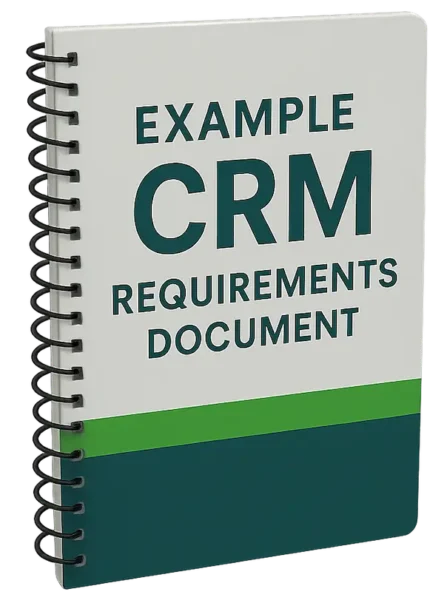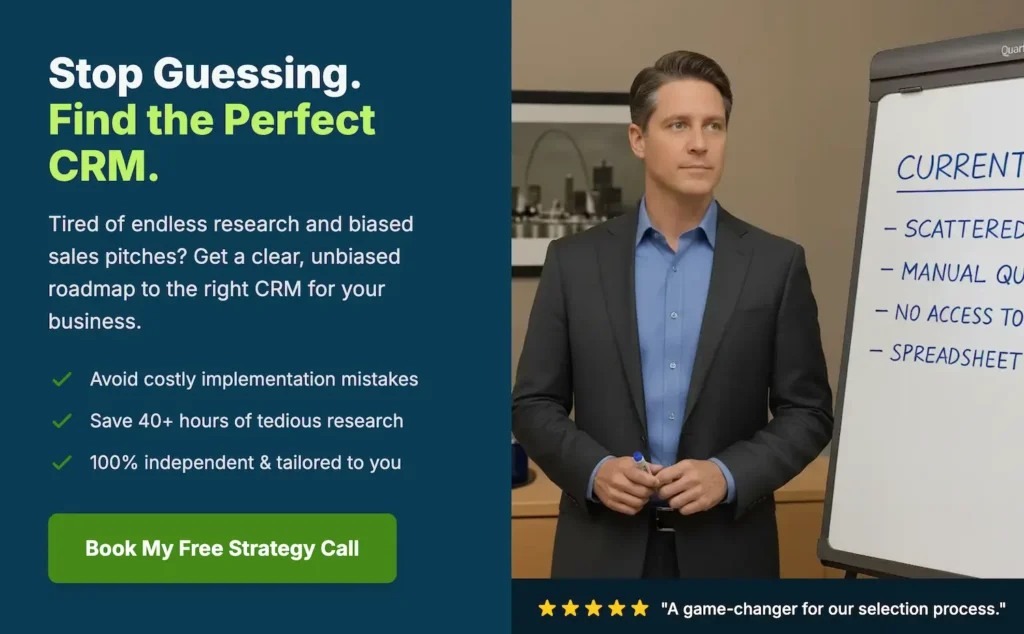 When you hear the words “peanut butter and”, there’s a very good chance your brain expects the next word to be “jelly”. That’s how it is right? Those two things always go together.
When you hear the words “peanut butter and”, there’s a very good chance your brain expects the next word to be “jelly”. That’s how it is right? Those two things always go together.
In the world of CRM, the closest equivalent we have is the pairing of CRM and marketing automation. And while that association makes sense on the surface, marketing automation isn’t possible without a strong online marketing program in place to begin with.
The relationship between CRM and online marketing is one that many business owners and executives have a hard time understanding.
On the one hand, CRM is a technology product. CRM is often delivered in a Software as a Service (SaaS) subscription like Salesforce, Microsoft Dynamics 365, Zoho, or SugarCRM. It’s primary purpose is to be a data repository for salespeople to organize, track, and pursue new clients.
Online marketing, on the other hand, is a marketing strategy. It’s something that is planned and implemented by marketing professionals to drive awareness, authority, and sales to the business through various channels like blogs, social media, and videos.
If you’re thinking, “Uh huh, so what?” – that’s okay. Hang in there for a bit.
Where Does CRM Data Come From?
CRM doesn’t work without data. For it to be useful, it needs to be filled with names, addresses, phone numbers, email addresses, and every other bit of useful information about a client or prospect that a business has.
So, where does this data come from?
Generally speaking, your businesses can get customer data from three sources:
- Data you already own
- Data you buy
- Data you are given
Data you already own: This is data your business has acquired in the past. It could be a stack of business cards, a spreadsheet of current clients, names scribbled on Post-It notes, or whatever else your business is using to track clients before putting them in CRM.
Data you buy: Buying lists of businesses and/or executives from a lead broker is still a pretty common tactic. While some sales teams have more success than others with lists like these, it remains an option for adding data to CRM.
Data you are given: This is the holy grail of data. Information that clients and leads provide to your business voluntarily is almost always the most useful data for salespeople and the company at large. This kind of data may come from inbound phone calls, trade shows, and (most importantly) your business’s online marketing efforts.
Where Do Online Marketing Leads Go?
While the answer to this question should be obvious at this point – all leads that come in from any source should go into your CRM system – it’s worth exploring what kind of impact this kind of data can have for CRM users.
First of all, leads that come in through online marketing are fresh. Any salesperson will tell you that this makes a big difference. Leads that are days, weeks, or months old are often less likely to convert. Leads that come in through your business’s online marketing channels and go right into CRM give salespeople the best chance to strike while the iron’s hot.
Additionally, your business’s marketing team is in full control (usually) of what data is collected through online marketing channels and passed into your CRM system. If your sales team isn’t getting the kind of data that enables them to be successful when they follow up, your online marketing team can coordinate and adapt to help alleviate the issue.
Finally, any lead that comes in via online marketing efforts has the inherent benefit of having already shown some interest in your products or services. A warm lead is infinitely more valuable than a cold one, and making that distinction clear for CRM users allows them to effectively prioritize which leads they contact first.
Using One Without The Other
While it’s perfectly possible to do online marketing without using a CRM system, and vice versa, your mileage from using one without the other will vary.
Online Marketing Without CRM
Without a CRM system in place, leads that come in through your online marketing channels are more likely to fall by the wayside. Trying to keep track of leads via spreadsheets, email chains, or sticky notes is never as effective as using a dedicated tool like CRM.
CRM Without Online Marketing
Businesses that don’t have a robust online marketing program can still take advantage of CRM. Regardless of where your business’s leads come from, putting them in CRM will make your sales team more efficient and productive.
However, companies that rely on high lead volume to generate new business that don’t have an online marketing program in place are handicapping themselves unnecessarily. Even a slow trickle of fresh leads coming into CRM each week or month is better than none at all.
Connecting CRM And Online Marketing
You’d be surprised at how many businesses are out there who already have CRM and an online marketing program running, but haven’t connected the two together.
Connecting your CRM system to your online marketing channels is essential to getting leads to your sales team as quickly and efficiently as possible.
For example, if you have a contact form on your website for sales inquiries, do those submissions go right into your CRM system, or somewhere else? If the answer is “somewhere else”, you’re likely missing an opportunity to increase efficiency for your salespeople.
Most modern CRM systems offer a way to capture leads straight from your company website and put them directly into your CRM system. This is commonly known as ‘lead capture’ or ‘web to lead’. Zoho has a great overview of how web forms work on their platform, and it’s applicable to many other CRM systems on the market as well.
There are other ways of connecting CRM to your online marketing, including using marketing automation software, but the most important thing to remember is that connecting the two gives your sales team the best chance for success.
Getting Help With CRM And Online Marketing
Successfully implementing either a CRM system or an online marketing program is no small task. Getting both of them running and working together can be a real challenge.
If your business is struggling to make either CRM or online marketing work, there are plenty of resources to get help. At CRM Switch, we specialize in helping companies design and implement both CRM and online marketing. For more information, please contact us today.



